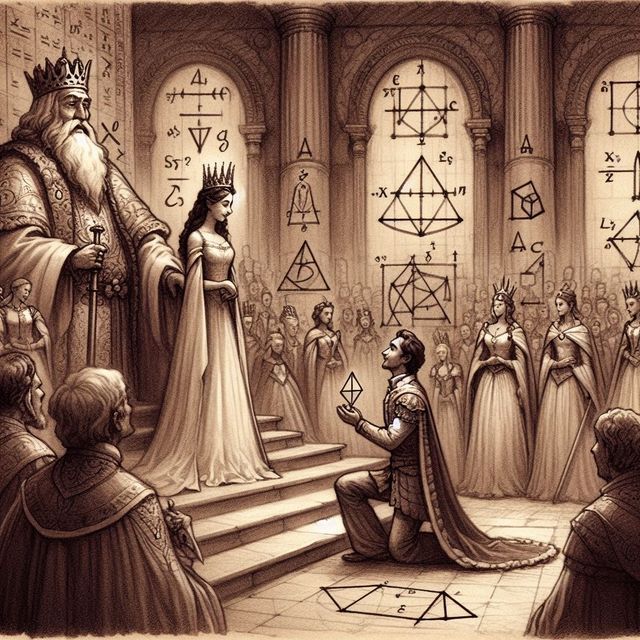-
Vijay Fafat
- Published on
A 1-page lyrical parable about the evolution of calculus through the marriage of Algebra with the concept of Limits (so the tale says), and the birth of its 3 Princes - Astronomy (using Infinity), Biology (using the theory of evolving forms) and Chemistry (using integration of atoms). And thus the A, B, C of the new math thrive, with Newton as their guardian. I wish the author had developed it much further, as it has a very unfinished feel to it.
Interestingly, the author was a very active mathematician who founded the Indian Mathematical Society in April, 1907 and was one of the first mathematicians to have interacted with Ramanujan and indeed, helped him gain the requisite financial and academic footing in his early days (an excellent article on him at https://mathshistory.st-andrews.ac.uk/Biographies/Aiyar/ )
Here is how the cute story starts:
“When Algebra, fair Daughter of King Arithmetic, is nearing her age of adolescence her eyes fall on Prince Limit, and there cometh a change upon her. Her tender heart goes forth to him, and in her lithe and nimble frame she feels a torture from end to end as it would fall to pieces. She is in love, and the Prince reciprocates her love. Happily they are wedded. The King gave away his Daughter, the Angels witnessed it, and all was joy. The marriage was performed Hymn of the Transcendent Number and Ratio, preceded by the Song of Limits, and followed by the Chorus of Continuity and Convergence.”
and the penultimate paragraph:
“The little Princes love each other dearly as they do their Parents and their Grandfather, and have grown in each other’s love, sometimes playing each other tricks. And now they have gone forth together to conquer the Higher Realms of Functions. Verily they shall have Eternal Life and Eternal Youth.”
